CAFNR

May 22, 2025
Six CAFNR staff members honored with Driver to Distinction Award
From left to right: Stephen Evans, Grace Meers, Monica Curry, Taylor Ann Washburn. Not shown: Jennifer Anderson, Maggie Penniston. CAFNR Vice Chancellor and Dean Christopher Daubert recognized six CAFNR staff members with the CAFNR Driver to Distinction award at the CAFNR Staff Council “Squeeze the Day” Staff Appreciation Week lunch. The awardees were recognized for their willingness to go above and beyond to create the best CAFNR experience for students and staff. Awardees include: Jennifer Anderson, Director of Accelerated Coordinated Master’s Program in Dietetics Monica Curry, Senior Business Support Specialist, Animal Sciences Stephen Evans, Buck’s Ice Cream Manager Grace Meers, Director…
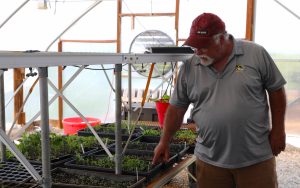
May 15, 2025
Jefferson Farm & Garden provides bedding plants to nonprofits statewide
MU Extension’s Jefferson Farm and Garden has raised about 5,000 spring bedding plants so far for over 750 educational and community gardens.
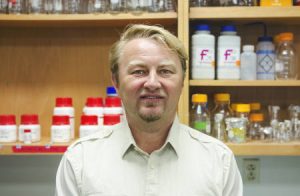
May 15, 2025
Animal Sciences faculty member named Mizzou Postdoctoral Faculty Mentor of the Year
Peter Sutovsky, professor in the Division of Animal Sciences, was named by Mizzou as the 2024/2025 Postdoctoral Faculty Mentor of the Year Award winner.

May 15, 2025
PST faculty member honored by American Society of Plant Biologists
Gary Stacey receives prestigious Stephen Hales Prize from American Society of Plant Biologists.

May 15, 2025
Plant sciences alum charts unique and global career path as owner of Three Story Coffee
Tony Anderson (B.S. Plant Sciences ’96) turned his love for plants into a love for direct trade on his journey to becoming owner of Three Story Coffee in Jefferson City, Missouri.

May 15, 2025
14 CAFNR students awarded Mizzou Forward Undergraduate Research Training Grants
Fourteen CAFNR students have been awarded Mizzou Foward Undergraduate Research Training Grants. The purpose of these fellowships is to financially support undergraduate students who are serious about pursuing a graduate education in STEM and NSF-funded fields in order to enhance their opportunity to be admitted into the graduate school of their choice.
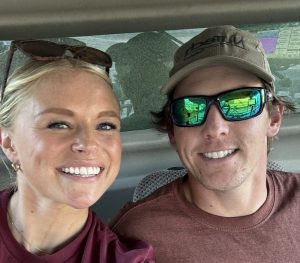
May 14, 2025
Back to the Farm – Q&A with Logan Korff
Logan Korff (B.S. Agricultural Systems Management '20) and his wife Abby (Bertz) Korff (B.S. Agribusiness Management '20) graduated from Mizzou and returned to the farm.
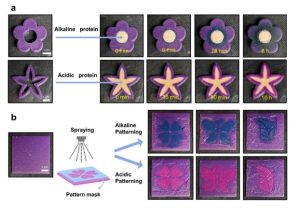
May 13, 2025
A recipe for change: Mizzou team prints meals with a twist
A team of College of Agriculture, Food and Natural Resources’ food scientists at Mizzou are pioneering the use of 4D food printing technology to revolutionize how meals are made for people with dysphagia, a condition that makes swallowing difficult. Their work aims to improve nutrition and safety while making pureed foods more visually appealing and appetizing.
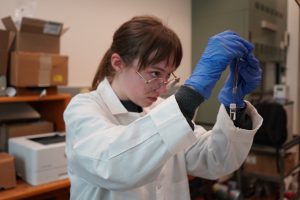
May 13, 2025
Plant sciences student presents innovative research at Undergraduate Research Day at the Missouri State Capitol
Ruth Williamson, a senior in plant sciences (breeding, biology and biotechnology emphasis) presented her research on the benefits of being outside on human health.

May 13, 2025
Mizzou Meteorology Club helps Mizzou achieve StormReady designation from the National Weather Service
The University of Missouri has earned a StormReady designation from the National Weather Service. The recognition is awarded to communities and institutions that demonstrate a strong commitment to severe weather preparedness and communication.